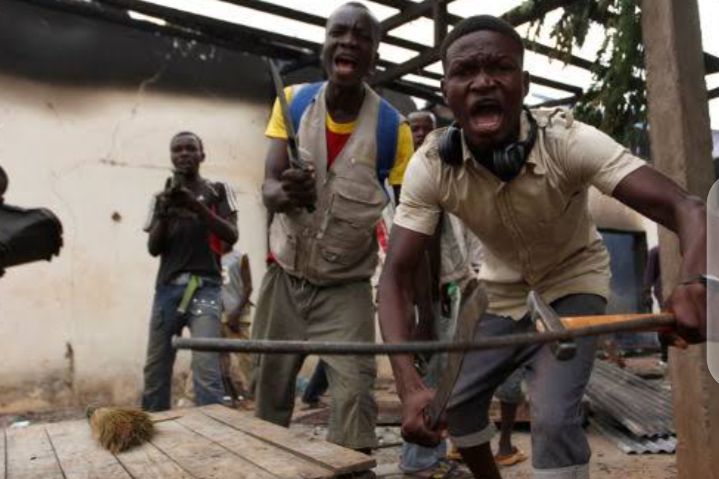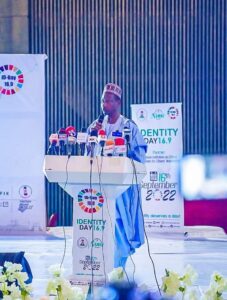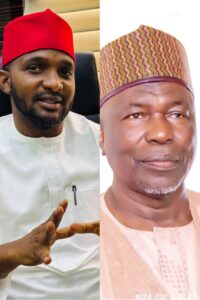
By : Dovou Janet Dung.
Sara Suka and thuggery have social problem and also challenge that affect our communities. Sara Suka and political thuggery activities have become worrisome in Northern part of Nigeria since the return of democracy in 1999.
Many have identified different causes of these heinous acts in the society. Some of which are:
POVERTY: Poverty has many effects on the society, and one of its obvious manifestations is violence, because if youth in the society have nothing to do, they will engage themselves in different forms of legal and illegal activities for a living.
You will find youths roaming about the street doing nothing from morning to afternoon, while later in the evening, some of them will go to various football fields either watch or play football. In the night, you will find them in viewing centres watching films or football. It is apparent that, this kind of behavior will not help in the growth and development of our society.
In many developing countries, Nigeria in particular, poverty is believed by many, to be an artificial social problem, created by corrupt politicians. They recruit unemployed and illiterate youths into political thuggery and other social vices such as Kalare in Gombe State, Sara-Suka in Bauchi State, Daba in Kano State and many more in different states of the federation.
Many politicians use that opportunity of stranded illiterate and unemployed youth in perpetrating various criminal activities in order to achieve their political gains.
The politicians usually give drugs and other dangerous weapons to attack their opponents and innocent members of the public, especially during campaigns.
To the leaders of tomorrow, if what these politicians are commanding you to do is good, why can’t they allow biological their sons and daughters or their relatives to be part of you? If they really want to help you, they should have taken you to schools or offer you jobs.
Another issue is education; you will find some teenagers and youths between the ages of 15 to 25 that didn’t even complete secondary school, not to even talk of tertiary institutions, due to the economic situation we find ourselves. Though, some have just decided to quit the schools due to some reasons known to them.
In this era, many youth prepare to get money at ago, rather than going to school to be educated. After failing to get something doing, some of them will engage in arm robbery, political thuggery, Sara Suka, among other evil acts just to get money.
Though governments are doing their bests by coming up with empowerment programs, there is need for them to step up efforts in that regard for an end to this menace.
It is sad that federal, states and local governments sometimes spend money in some areas for nothing. If that money was used judiciously, it would improve the lives of our youth and they can’t even waste their time following Politicians in order to give them money.
According to National Bureau of Statistics, Nigerias population reached about 167 million people in 2012. And almost about half which is 43.69 of the population is made up of youth between 15 and 34 years of age. Unfortunately, as the youth population grows, so does the unemployment rate.
In fact, unemployed youth numbered about 11.1 million in 2012. Also in terms of age, younger youth struggle even more to find jobs; at least two-third of unemployed youth are between 15 and 24 years of age. And, in terms of gender, available statistics show that a majority of unemployed youth are female. According to the statistics, women accounted for more than 50 percent of unemployed youth between 2008 and 2012.
Analysis of youth unemployment by geographical and settlement location rural and urban areas indicates that youth unemployment is mostly in rural areas and rapidly growing.
From 2010 to 2011, the share of unemployed youth in rural areas increased from 47.59 percent to 59.95 percent. The population of unemployed youth in rural areas rose from 2.9 million in 2008 to about 5.9 million in 2012.
As youths, try as much as you can to find something to do, not to relent on government to provide job for you. We have so many jobs that you can do, without having capital whether you are educated or not. With small capital, you can start selling sachet water, in this Corona virus pandemic period, with small capital you can start of Selling face mask, chocolate in the markets.
You may also engage in meaningful ventures such as carpentry, tailoring, mechanic, and many more. If you can use these advices, Insha Allah we shall overcome the scourge of violence and poverty in Nigeria.
Dovou Janet Dung is a student of Mass Communication , Abubakar Tatari Ali Polytechnic Bauchi.


